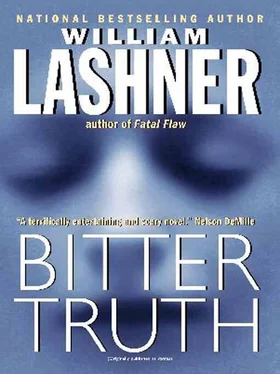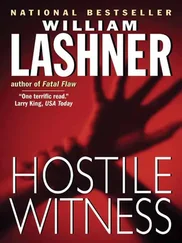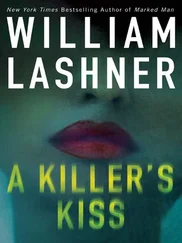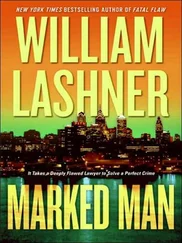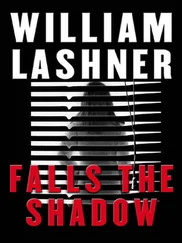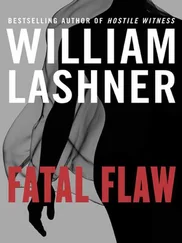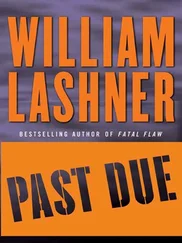“Forget about the girl,” said Calvi. “We’re taking care of her. She’ll stay right here while we wait, what could be safer?”
What indeed? I stood up and headed away from the table.
“Where you going?” asked Cressi.
“I’m going to the pot, do you mind?”
“Well, hurry up, ’cause I gotta drop a load myself.”
I walked across the living room, the dark stares of the Cubans following me, and stepped into the bathroom. As soon as I closed the door I locked it and dropped down to the seat on the toilet and shook for a bit. Then I stood and went to the sink and ran the water cold and washed my face and let it tingle for a moment before I dried it with a towel. I took the towel I had just used and stretched it across the crack at the bottom of the door. There was a window in the bathroom, and I thought for a moment of climbing out and jumping, but the window was small and the fall was three stories and Caroline was still imprisoned with Sam the cat in my bedroom. So what I did instead of climbing out the window was reach for the light switch, turn it off, and then click it on three quick times, on again for three longer times, and then three short times again. On the last short burst of light I heard a banging on the door that scared the absolute hell out of me.
“Get the fuck out of there,” yelled Cressi through the door.
“What’s the matter?” I shouted back.
“I told you I gotta go.”
“Give me a break. I’m still on the pot.”
It was a good thing just then I was already in the bathroom.
THE PHILADELPHIA NAVAL SHIPYARDrises rusted and desolate on the southern tip of Philadelphia, a flat slab of land that reaches out like a claw into the confluence of the Schuylkill and Delaware rivers. Surrounding the yard, like funeral pyres, refinery stacks shoot the flames of burnoff into the sky, scorching the air with the thick rotted smell of sulfur. Thirty thousand blue-collar heroes used to march to work each day into the yard, bringing their hard hats and lunch buckets and cheerful profanities, before the government closed it down and sent the work to Charleston or Norfolk or Puget Sound and the workers to unemployment. Now the furnaces are cool and the machine shops quiet and the dry docks empty of all but the pigeons, who leave their marks like avian Jackson Pollocks on the wide flat-bottomed gashes that once held the proudest ships in the fleet: the Arizona , the Missouri , the Tennessee . There was one last gasp for the naval yard, when a German shipbuilder looked to set up shop there, but the governor played it badly and the German took his toys and went away and the shipyard now is left to rust.
We were in a black Lincoln, driving south on Penrose Avenue, toward the bridge that would take us to the airport, but instead of going straight over the bridge we turned left, onto a deserted four-lane road that I had passed a hundred times before, never knowing where it went. Well now I knew; it went to the rear entrance of the Naval Shipyard. I was sitting in the middle on the front bench of the Lincoln, with Cressi driving and Calvi beside me. Wedged into the back were Anton and Caroline, with the two Cubans at either window. I had hoped there would be a chance for Caroline to bolt as we made our way from the apartment early in the morning but Cressi, his gun back in his pants, hovered as protectively over her as if she were his sister at a frat party, so Caroline was still with us when we reached the car. Cressi literally threw her in the backseat and put the Cubans on either side as guards.
We approached the rear gate. It was unguarded and seemingly shut tight. A sign warned against unauthorized entry and cited the applicable provisions of the Internal Security Act. Another sign warned that the site was patrolled by Military Working Dogs. Cressi stopped the car just in front of the gate and Calvi stepped out. He walked to the chain that held the gate closed and gave the chain a yank. It unraveled with a slinking hiss. Calvi slid the gate open and Cressi drove us through. While Calvi shut the gate behind us and got back in the car I looked out the side and saw the signs to the now abandoned Navy Brig.
Slowly we drove along the shipyard’s deserted streets, littered with empty work sheds, unused warehouses, desolate barracks. None of us said a word as we drove. Whatever work was still being done at the yard hadn’t yet begun for the day and whatever guards were supposed to have been patrolling with the Military Working Dogs had conveniently chosen some other beat to pound. We passed a tractor-trailer parked by the road, its back open, the trailer empty. We passed four garbage trucks parked one after the other, their cabs dark. We drove beneath a soaring elevated section of Interstate 95 and then over a bridge, with giant green towers to lift the span vertically and allow approaching ships to enter. As we passed over the bridge, to the left we could see the reserve basin, holding dozens of mothballed gray-painted ships, frigates and cruisers and supply ships and tankers, a veritable fleet. I felt just then as intrusive as a Soviet spy during the Cold War.
We drove straight until we reached a huge deserted dry dock, surrounded by green and yellow mobile cranes, and turned left, past a vacant parking lot, past shuttered warehouses, the streets and the lots all criss-crossed with railroad tracks. As we drove I looked to my right and saw a startling sight, battleships, a pair of battleships, huge and empty, their sixteen-inch guns lowered to horizontal. I could just make out the name of the one closest to shore: Wisconsin . Past still more warehouses and then another dry dock, the sides of this one not vertical but tiered and its bottom red with rust. At the edge of this dry dock we turned right and stopped the car by a long low building and waited. In the Delaware River, right in front of us, were two naval cargo ships, the sharp edges of their prows pointing straight at our car. I didn’t know what we were waiting for, but I knew enough not to ask. The windshield steamed over from our breaths. We sat in silence until the cell phone in Schmidty’s jacket beeped. He opened it, listened for a moment, and shut it again.
“It’s all in place,” he said.
“Time to claim the trophy,” said Calvi.
Four car doors opened and we climbed out of the Lincoln. Cressi took his huge gun from his belt, slapped open the cylinder, closed it again with a flick of his wrist. Anton pulled a small semiautomatic from his boot and chambered a round. The two Cubans unstrapped assault weapons from beneath their pant legs, flipped opened the skeleton metal stocks, and locked them in place. They both took two long clips from their pockets, each fitting one into his weapon and the second into his belt. Calvi reached into the glove compartment of his car and took out a revolver, checking it carefully before sticking it into the pocket of his long black raincoat. The sound of oiled metal clicked about us like a wave of wasps.
“Do I get anything?” I asked.
“You ever shoot a gun before, Vic?” asked Calvi.
“No,” I said.
Cressi snickered.
“Then forget about it,” said Calvi. “I don’t need you shooting my foot off. The girl stays in the car and I want one of the Cubans with her. She is not to leave the car under any circumstances, is that understood?”
Caroline looked at me with panic and I tried to calm her with a quiet motion of my hand. Anton gave directions in Spanish and one of the Cubans took hold of her and pushed her back into the car.
“What are you going to do with the girl?” I asked.
“We’re taking care of her,” said Calvi, slamming her door and shucking his shoulders.
Читать дальше
